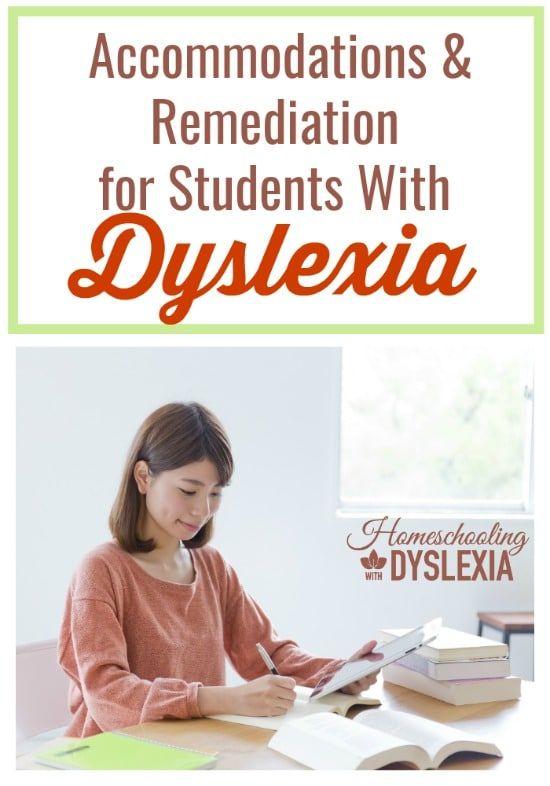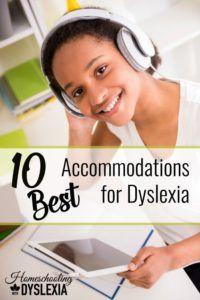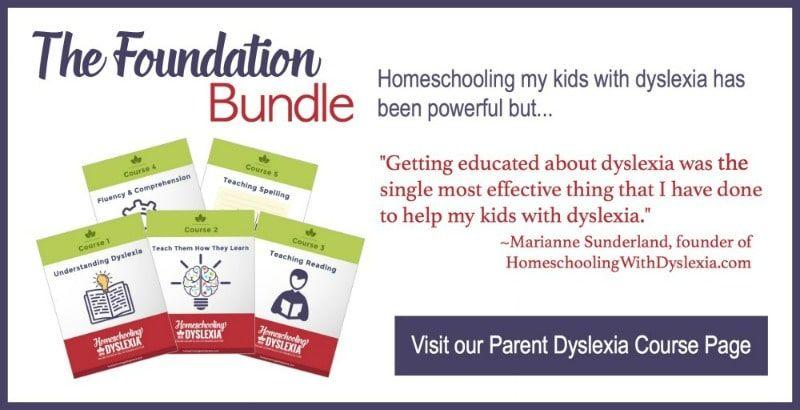Two of the most important concepts any parent or teacher of students with dyslexia should know are: remediation and accommodation.

What is Remediation?
Remediation refers to the remedy-ing of a student’s areas of weakness. Some examples of remediation are Orton-Gillingham reading instruction to remediate reading ability or teaching students how to organize their thoughts with graphic organizers so they can write better. Remediation can be very time consuming. In many cases there is no one curriculum that just ‘works’. Rather it is the implementation of individualized instruction, at the child’s pace and at their instructional level – day after day.
What is Accommodation?
Accommodations are methods that accommodate a particular weakness so that the student can perform at their intellectual ability.
Examples of accommodations are:
- allowing a student to listen to an audio version of a reading assignment
- allowing a child with dysgraphia to dictate a writing assignment
- allowing more time for testing
- allowing a reader in situations where an audio version isn’t available
Kids with learning differences aren’t the only ones who receive accommodations. If a child has a broken arm, they may be allowed to dictate a paper. If a child is blind, no one would expect them to read without the accommodation of books written in Braille. Likewise, kids with learning differences should receive accommodations so that they too can perform to their best ability.
Remediation can be looked at as fixing the foundation of a child’s learning. All children need a strong foundation in the basics. Kids with learning challenges, like dyslexia, just need more time to build that foundation.
Balancing Accommodation and Remediation
In the traditional school setting, it can be difficult to get the right kinds of remediation and as the grade-leveled assignments come in day after day, oftentimes more attention is given to providing accommodation than remediation.
As homeschoolers, we have the freedom to individualize our kids’ instruction time and methods so that we can spend enough time on remediation while gradually implementing accommodations so that our kids can learn material at a level with which they are capable and begin to work more and more independently.
Read the post below for a list of the most effective and helpful accommodations to help your child with dyslexia learn.
How have you learned to balance accommodation and remediation in your homeschool?
The Importance of Parent/Teacher Education
This site exists to educate and encourage families with dyslexia. Dyslexia does not need to be a disability if the teacher understands how dyslexics learn and the right teaching methods are used. For more in depth understanding about teaching kids with dyslexia, consider taking one of my parent dyslexia courses.







Thank you so much for these emails I’m homeschooling my 9 year old daughter with dislexia and dis graphica . These help me to try and figure out how to teach her . When she writes she spells it how it sounds . So most of it you can not read . But she is reading on a 2 nd grade level sometimes it’s hard but she does comprehend it. She is in 3 Rd grade . These emails help me to know it will be ok .
I’m so glad Chanda!! SPelling takes the longest to develop. They need to get pretty strong with reading before they are ready to internalize spelling.
Where do you start with an undiagnosed 10 yr old fourth grader who can barely read and her parents are in denial. I am in law family to them and a retired educator as well as a mom of à successful 28yr old daughter with Down Syndrome. I understand the need for accommodating but these parents just think she’s not trying.
Hi Eleanor. The parents really need to learn about dyslexia!! Since dyslexia is genetic, its likely that one of the parents is dyslexic. Do you know? I would see if you can tutor her over the summer with a good Orton-Gillingham program.
This has been a breath of fresh air and encouragement to get for my son with dyslexia and disgraphia! Thank you so much! He is 13 now and reading is almost to the 4th grade level. He does great in math and actually is understanding LA now that we are using IEW’s Fix it Grammar program but we haven’t found a science that he grabs on to… Any suggestions for Science?